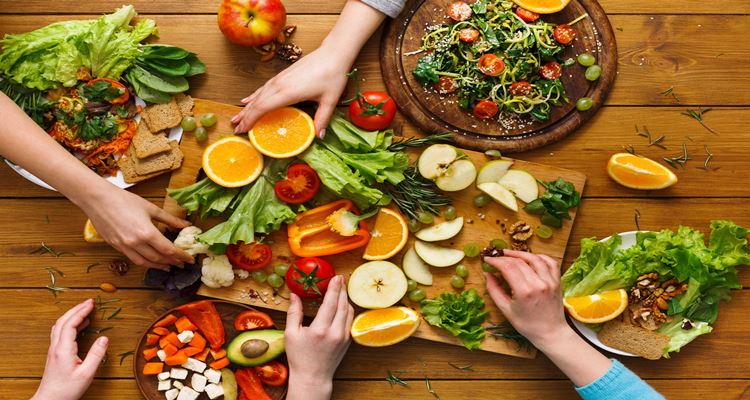What are the health risks of a vegetarian diet and how to address them?
VEGETARIAN DIET – These are the health risks of doing a vegetarian diet and some healthy food alternatives to address these health risks.
“A person who does not eat meat for health or religious reasons or because they want to avoid being cruel to animals” is vegetarian. Should you become one?
Being a vegetarian comes in various types. They are the following:
- Vegans (total vegetarians): do not eat meat, poultry, fish, or any products from animals including eggs, dairy products, and gelatin
- Lacto-ovo vegetarians: do not eat meat, poultry, or fish, but eat eggs and dairy products
- Lacto vegetarians: do not eat meat, poultry, fish, or eggs but eat dairy products
- Ovo vegetarians: do not eat meat, poultry, fish, or dairy products but eat eggs
- Partial vegetarians: do not eat meat but eat fish (pesco-vegetarian, pescatarian) or poultry (pollo-vegetarian)

Since this diet mainly focuses on plants for food, people who do this might encounter some health risks and concerns.
When you do a meatless lifestyle, you will likely not get enough nutrients like protein, vitamin B12, iron, zinc, and omega-3 fatty acids.
This is how you can address these health concerns:
- Protein can be found in dairy products and eggs. Protein from animals is also needed by the body. Fortunately, there are plant foods that can help a vegetarian meet his protein needs like peas, beans, lentils, chickpeas, seeds, nuts, soy products, and whole grains (for example, wheat, oats, barley, and brown rice).
- To avoid Vitamin B12 deficiency, eat foods fortified with vitamin B12 like certain soy and rice beverages and breakfast cereals. You may also take vitamin B12 supplements according to a Harvard Health post.
- Non-meat food that has iron are spinach, sweet potatoes, peas, broccoli, string beans, kale, wheat products, strawberries, watermelon, and many others.
- For calcium, some of the rich sources are fortified plant-based milk such as soy or almond, calcium-fortified juice, some leafy greens like collard greens, turnip greens, and kale, soybeans, chickpeas, almonds, and many others.
READ ALSO:
- Buko Juice Benefits – What Are Its Health Benefits?
- Electrolyte Imbalance – Signs, Causes, and Treatment
What can you say about this? Let us know!
